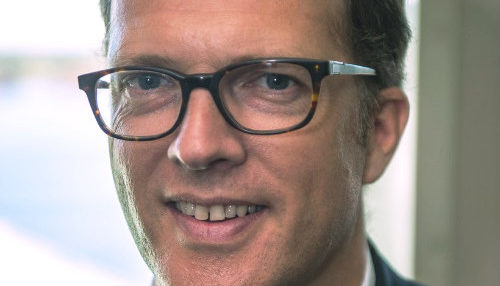Euronav: ‘When the cycle is down we can be opportunistic’

Arguably no sector in shipping is more constantly on a knife edge than the VLCC sector, a segment prone to extremely rapid swings in earnings. A safe pair of hands is what is needed to navigate the supertanker seas and in Hugo De Stoop, Euronav has the right person for the job. A 15-year veteran at the Antwerp company, De Stoop stepped up from CFO to CEO 10 months ago.
Analysts – and Splash – gushed when on January 30 the Belgian tanker giant revealed its stunning $160.8m net profit for Q4. Citing “robust fundamentals” just two weeks ago, Euronav stated at the time how its VLCCs in January had been trading at $89,200 per day and the firm’s suezmaxes pocketing an average of $57,000 a day.
And then the full effects of coronavirus blew in, ushering in a precipitous drop in tanker fortunes, rarely seen in terms of its speed and severity. Chinese oil demand suddenly dropped by around 20% making it the largest demand shock the oil market has suffered since the global financial crisis of 2008 to 2009, and the most sudden since the September 11 attacks in the US in 2001. This combined with the recent lifting of sanctions on 26 Cosco VLCCs saw many of the world’s largest tankers plummet from earning six-figure daily sums last month to operating below opex.
However, for Euronav and De Stoop, this monumental change of fortunes has brought opportunities and he still maintains the fundamentals of the tanker sector remain an attractive proposition in an exclusive interview with Maritime CEO.
Yesterday, Euronav pounced for three Sinokor resale VLCCs due for delivery later this year and early 2021 from Daewoo Shipbuilding & Marine Engineering (DSME). While most of the reporting surrounding the deal centred on the fact that the ships will be Euronav’s first to feature scrubbers, the real headline was the price paid – $93.5m per ship. Resales for the last couple of months had prior to this been priced for $100m or above.
De Stoop reminds readers that Euronav, throughout its history, has always been an opportunistic type of company.
“When the cycle is down we can be opportunistic to take ships at a good price to operate long term,” he says in connection with yesterday’s triple acquisition for $280.5m, saying that before the Sinokor deal prices had been too high for resales.
Ahead of the global sulphur cap, Euronav had been one of the most high profile opponents of going down the scrubber route, opting instead for a unique strategy of buying up huge volumes of VLSFO in early 2019 and sending it for storage to Malaysia on one of its ULCCs.
However, as De Stoop, ever the numbers man, stresses – reacting to all the scrubber headlines yesterday – Euronav’s stance was always regarding existing ships, not newbuilds.
“You can’t get a newbuild for prompt delivery without scrubbers,” he points out, adding: “We were not convinced about the economic case for scrubber retrofits.”
De Stoop says he and his team liked the three ships for all their specs and the price negotiated, not simply because they happened to have scrubbers installed. Indeed, De Stoop makes the point that Euronav would not have changed anything in its sulphur cap strategy if he had the time again.
On the coronavirus, the Belgian executive reckons the effects will be felt in the tanker trades into Q3, but by next winter China ought to be in a position to pick up demand.
“Yes, it is a catastrophe,” he concedes, “but we know it is temporary in nature, and when the Chinese come back they will accelerate.”
The actual supply fundamemtals of the tanker sector remain good, De Stoop argues, pointing to the limited orderbook in the coming 24 months and the tranche of ageing ships that will head for demo soon.
Pointedly on the virus, the boss of the largest independent crude oil tanker company in the world, tells Maritime CEO: “It’s been a good reminder to people in the tanker sector that rates can go up and down very quickly.”
Look out for the full interview with the Euronav boss in the next issue of Maritime CEO magazine including De Stoop’s take on tanker consolidation – “It’s only at the beginning” – and why tanker owners and operators ought to be more transparent in their CO2 emissions reporting. To subscribe to Maritime CEO magazine, email: grant@asiashippingmedia.com.
